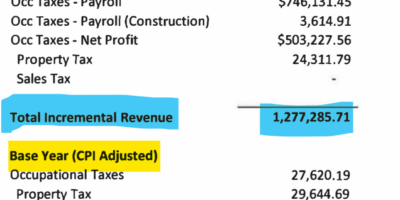By Joy Arnold
Record amounts of money spent in November’s election did not always reap as much as its sowers hoped. There were some glorious victories for the rest of us in spite of money. Across the country in over 150 cities, for example, residents had the opportunity to vote on measures calling for an end to the doctrines of corporate constitutional rights and money as free speech. In every single town the vote was supportive, often by overwhelming margins. It passed in ultra conservative Pueblo, Colorado, where the city newspaper came out against it, as well as in liberal Boston.
These ballot initiatives follow the 173 municipal governments across the country that have passed such resolutions and 55 organizations that have endorsed the work of Move to Amend, a national coalition of groups building grassroots support for a two-pronged Constitutional amendment that declares corporations are not people and money is not speech, and that therefore both can be regulated.
Limitless money in our elections gives us commercials that make us sick and mislead voters. But it is after the election that the real damage gets done, when citizen lobbyists’ voices, even those of small contributors, often get drowned out by those who gave millions. That’s what happens when money is considered speech. As regulations are written and policies established, lobbyists from those major contributors are sitting in offices on Capitol Hill, where they are dictating what can be included and what must be left out.
Stopping limitless corporate money is, indeed, a part of the battle to take our government back, but it does not go far enough. The Court has already deemed that corporations are people. Any amendment must also undo well over a century of illegitimate precedents that have increased corporate power at the expense of a citizen-centered democracy.
Here is Thomas Jefferson writing in the 1780s at the dawn of the republic: “I hope we shall crush… in its birth the aristocracy of our moneyed corporations, which dare already to challenge our government to a trial of strength and bid defiance to the laws of our country.”
Since Jefferson’s time, corporations have undergone a tremendous makeover. When Jefferson warned of the damage corporations could do to the government he and his colleagues were creating, states granted charters to businesses that wanted to incorporate. These charters set forth the one business the company would perform, the geographic location in which it would do business and the length of time the charter would be valid. When the business completed its stated purpose, the charter expired. To continue after the date of expiration, the corporation had to re-apply to the state legislature. Further, each corporation’s purpose had to be for the public good—not, as a 1919 Michigan case defined its purpose, as “primarily for the profit of the stockholders.”
Initially charters gave privileges to corporations, whatever privileges the state wanted to give. They were not given rights that were given to natural people in the governing documents of the nation.
Right by right, however, the high Court, without any legislative action and sometimes without adherence even to normal procedural practice, has ascribed rights intended for people in six of our Constitutional amendments to corporations, which, as Justice Stevens said in his Citizens United dissent, “have no consciences, no beliefs, no feelings, no thoughts, no desires. Corporations help structure and facilitate the activities of human beings, to be sure, and their ‘personhood’ often serves a useful legal fiction. But they are not themselves members of ‘We the People’ by whom and for whom our Constitution was established.”
January 21 will mark the third anniversary of the Supreme Court’s decision in Citizens United vs. Federal Election Commission that granted corporations the First Amendment (human citizen) right to unlimited money use of money as free political speech. This year the anniversary falls on the same day as Martin Luther King, Jr. Day and the inauguration. Both will garner more attention than the decision.
Many of us will commemorate January 21 by continuing our grassroots organizing efforts to show the 99% how corporations have taken government created of, by and for the people from us—and how we can reclaim it.
Consider making it your New Year’s resolution to bring your networks, your skills, your talents to Central Kentucky Move to Amend. Work with us to reclaim our government and create participatory democracy. There’s a movement afoot, but it needs soldiers like you to step up and push.
Find us at movetoamend.org by selecting “Kentucky,” or email us at central-ky@movetoamend.org




Leave a Reply